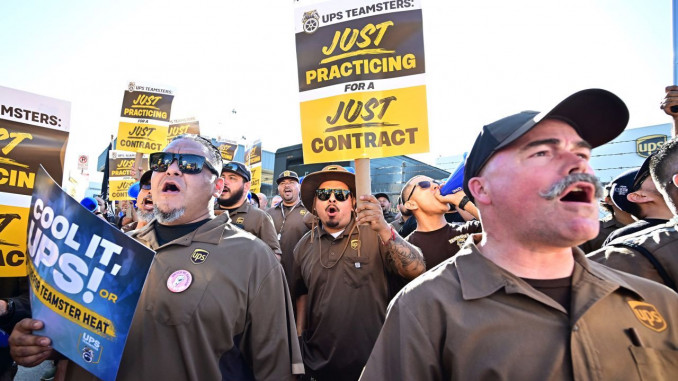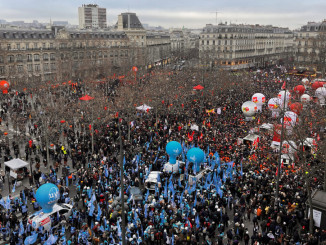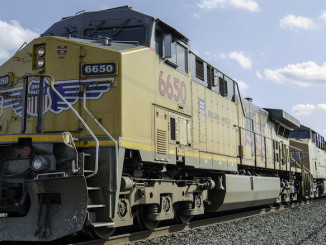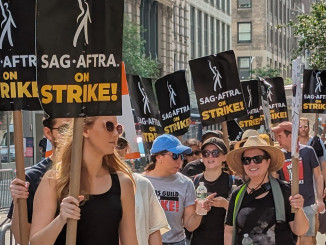
On July 25, the bargaining team of the Teamsters union and United Parcel Service (UPS) reached a tentative agreement on a five-year contract for more than 340,000 workers. Teamster members will vote on the contract from August 3 to August 22.
UPS management and the union’s top officials, along with the U.S. Department of Labor are all claiming that it is a good contract and seem confident that the workers will vote to ratify it. There are some positive changes that could cost UPS some money. But we have to be a little suspicious when UPS CEO, Carol Tomé, says that the contract is a “win-win-win agreement” for all involved. Teamster president Sean O’Brien said, “We demanded the best contract in the history of UPS, and we got it… We’ve changed the game… This contract sets a new standard in the labor movement and raises the bar for all workers.”
There are real gains, compared to the past 20+ years of takeaways. But UPS hasn’t changed its goal of maximizing its profits. Last year it reported profits of more than $11 billion. And it has to guarantee a similar level of profits to the banks and other stockholders. So, anything given with one hand they will try to take with the other. Many of the gains in the contract are restoring what workers gave up in previous contracts.
The elaborate two-tier system imposed on full-time workers has been eliminated. But inequalities between full-time and part-time workers have not changed. Part-time workers will get a wage increase, but they won’t be paid the same wage as full-time workers for doing the same work. This is a a five-year contract and a lot can happen over five years. Wages and benefits that seem like a gain today can disappear with runaway inflation.
The contract covers installation of air-conditioning in new trucks beginning in 2024. Fans will be put in most trucks the month after the signing of the contract. Many parts of the country are facing dangerous heat waves and people working under those condition are endangering their lives. Without immediate installation of air-conditioning units in trucks and sorting centers many workers will continue to work in dangerous situations.
A lot of people were watching this contract, both workers and bosses and not just at UPS. Many workers were hoping that a successful strike could open new possibilities. And corporate heads were concerned about a strike that could disrupt the economy and motivate workers in their companies. They were concerned about the impact of a strike by auto workers, whose contract expires September 14, and by the 165,000 actors, the 11,500 writers, and LA hotel workers who have been on strike. Reinforcing those strikes could help other workers make the decision to join what could be a real strikewave of workers across the country.
If the UPS workers vote to accept this contract, it’s not game over. There is a growing discontent of millions of workers who are tired of watching their paychecks eaten up by inflation and having to work overtime or pick up another job to try to earn enough money. When that discontent is organized, we can bring about the changes we need. We are often divided workplace by workplace. But when a company like UPS or the railroads face a possible strike, the bosses stand together, and bring their politicians along to back them up. We need to look at our class interests in the same way. We have no one to rely on but ourselves, as workers.
Our future is up to us and won’t be solved at the bargaining table but only when we organize and mobilize our power together to create the future we need and deserve.




